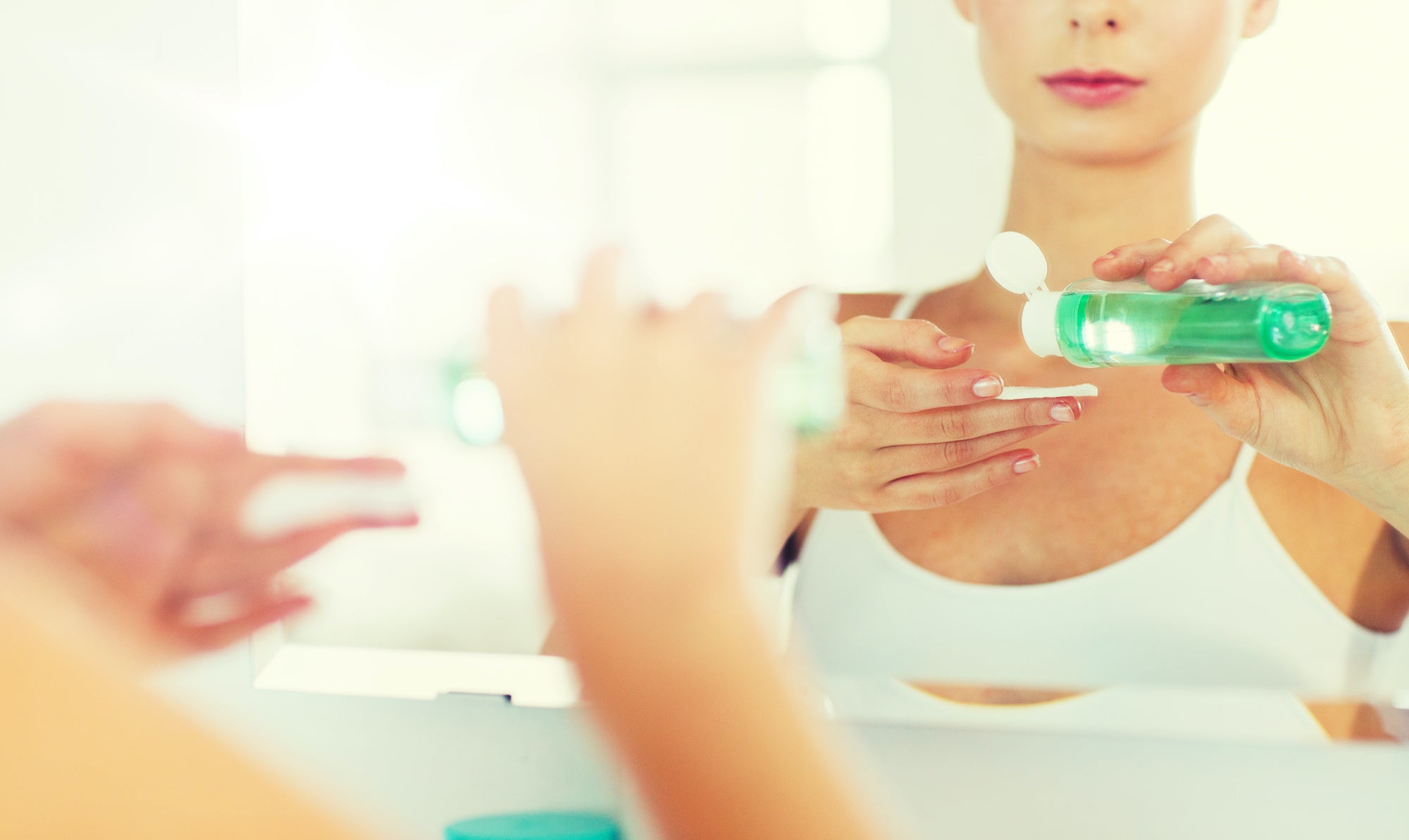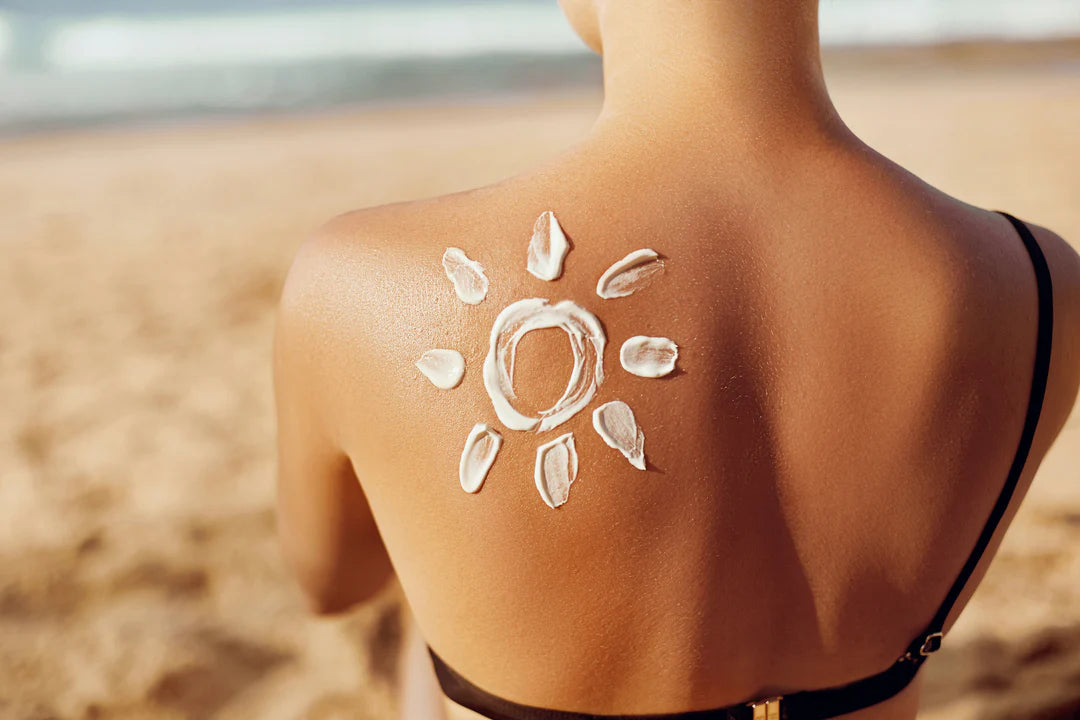
Astringent vs. Toner
Here's the scene: You're in the skincare aisle. You see the champion product that you have been using since those teenage years- astringent. But, right beside it is an unfamiliar newcomer- toner. You pick them up, and while they both seem to be something that could help your skin, you're stuck on which one to choose. What do you do in this situation?
So many of us have come across that defining moment when we must decide to either stay with those "comfort" products or take the leap of faith into the unbridled unknown.
The funny thing is, many of us have stuck with the same skincare items for years all because of our fear of switching. We tend to still hold those first products as the holy grail in our minds.
But, today is the day that we step into new territory and gain some knowledge on what we’re using!
Here is your crash course on astringents and toners!
What Is Astringent?
While many of us have used astringent, do we know as much as we should about this OG product?
Here are a few fun facts that you probably need to know.
An astringent is a water-based product used to provide the skin with a "deeper cleanse" than the traditional cleanser (by removing excess oil and debris from the day). It has been a staple in skincare for years, and many doctors have referred to it as the ultimate way to control oily and acne-prone skin.
For many people, astringent has been the number one way to control the overproduction of oil. And you know what, it has worked in stripping the skin of oils for sure.
So from that short description, you're probably thinking, "Well, that sounds perfect, so what's the problem?!"
The problem is the ingredients. If you're like me, you never second-guessed why your face always stung after you applied astringent. But you probably should have.
The culprit is a "bad-guy" ingredient that should never be in a skincare product in large amounts. It is none other than... ALCOHOL!
As in, the stuff that can be used for cleaning and disinfecting. And while the idea might pop into your head that you could just find one that doesn't include it, it will be a long search, and the astringent won't be effective. Why? The glue that holds the astringent together is alcohol.
Disturbing, right?
Points to remember:
- It strips the skin of oil to help control the overproduction of oil
- It's used as an addition to the cleansing routine.
- Alcohol is the base for the product
What is a Toner?
So let's dive right into the deep end, shall we? Figuring out what toner is in the first place naturally makes a great starting point.
A toner is typically made up of humectants, like glycerin, hyaluronic acid, or propylene glycol, which are used to reduce the loss of moisture in a product. In a toner, water binds to the skin to soothe and help restore the natural pH level so that breakouts can be a thing of the past.
If that wasn't encouraging enough, some toners are chock-full of beneficial ingredients for healthy skin. And, a toner can improve not only acne but also acne scars.
The bonus: Most toners include very little alcohol! Major Score!
Toner is different in its overall makeup when compared to an astringent, but it works the same by targeting dirt and impurities. It also goes above and beyond what most cleaners can remove.
And lastly, it can help nutrients sink deeper into the skin.
Points to Remember:
- Removes debris your cleanser may have missed
- Can help serums and moisturizers better penetrate the skin
- Most are alcohol-free or have very little
- Replenishes, soothes and brightens the skin (great for people with hyperpigmentation or acne scars)
What's the Difference Between Toner and Astringent?
The ingredients are the real difference when it comes to astringents and toners. Just like with anything nowadays, the fine print is the number one thing that you have to watch out for, and it is also the number one thing that you should look out for if you are trying to decide on a skincare product.
If you see a large amount of alcohol in any product, like with astringent, it's time for you to run as your life depended on it! (Especially if you see alcohols like SD alcohol, denatured alcohol, or isopropyl alcohol!)
These give you the quick-drying finish that we feel after using an astringent and will take away the natural oils. If you're already fighting the effects of acne, then the last thing you need is a product that can potentially do more harm than good. Am I right?
Now, is this to say that a product with alcohol is an absolute write-off? Certainly, not! As I mentioned above, some toners contain alcohol. The problem lies in the amount used and if the product is largely comprised of it without other ingredients that can replenish what the alcohol may have stripped. It’s all a matter of balance.
For this reason, toner has replaced the space that was so religiously devoted to astringent on my shelf. No stinging, no harsh chemicals, and I saw real results in a matter of 1 month. And while that sounded like a completely cringe-worthy infomercial, it's nothing but the truth.
Toner is like the friend you always wished you had but didn't for years and years.
Studies have even shown that a significant improvement occurred when a group of acne sufferers started incorporating toner into their daily regimen.
Which One Is Right for You?
The clear skin journey can be taxing, it can take time, and it can seem like a lot of steps. But when using the right products, your face can be more radiant than you ever imagined, and stun you with the results! You don't need products that will set you up for failure; you need ones that will ensure your success.
And that is what our Luminous Complexion Toner can do for your skin. One of my favorite products ever, it has done wonders for thousands of women by providing lasting nutrients and vitamins without the sting. Your skin deserves nothing less than the best! Cheers to happy, healthy skin!





